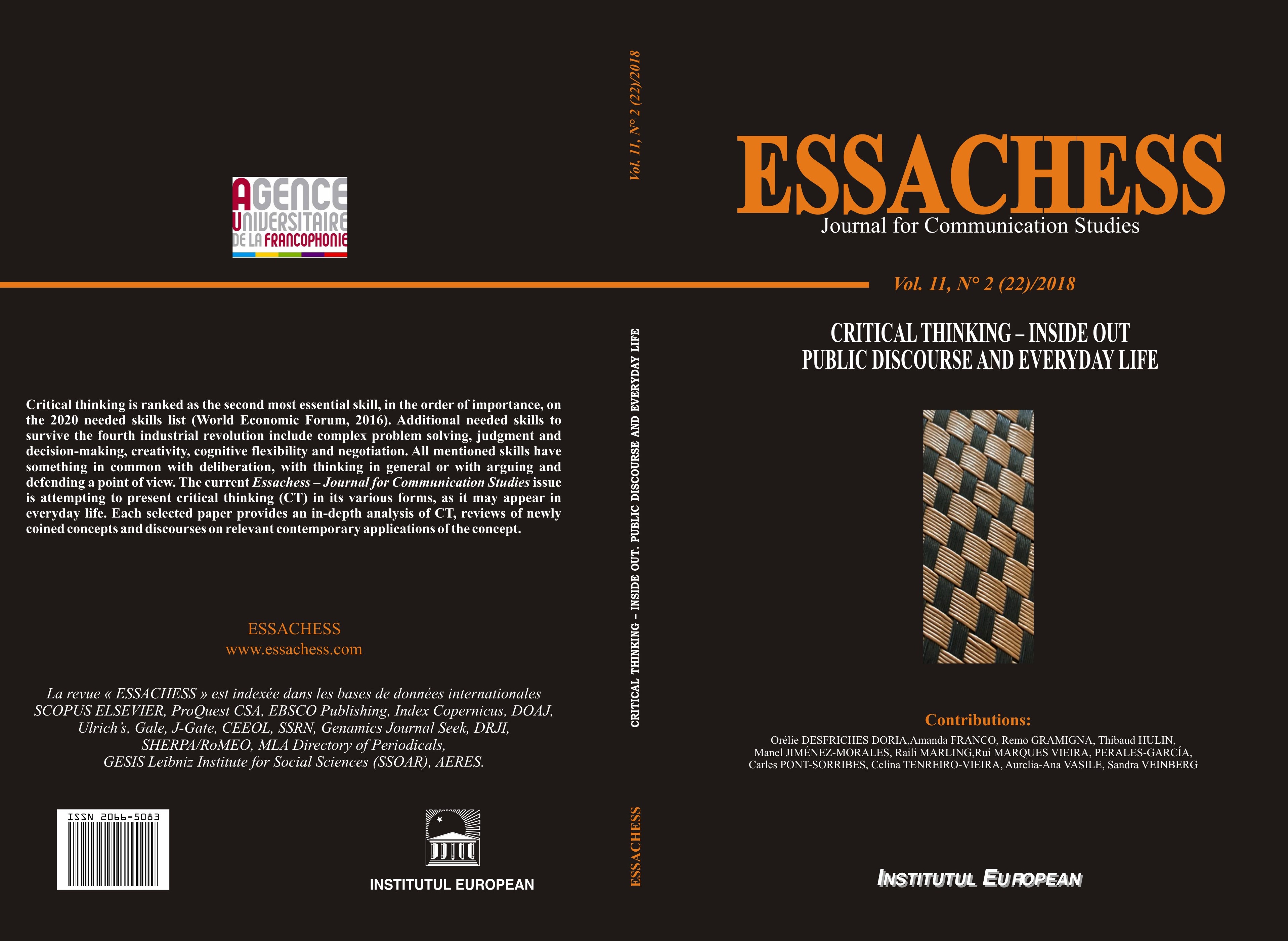The Műnchausen Effect and the post-truth era advertising messages. Critical analysis on fallacious and enthymematic advertising slogan argumentation
The Műnchausen Effect and the post-truth era advertising messages. Critical analysis on fallacious and enthymematic advertising slogan argumentation
Author(s): Vasile Aurelia-AnaSubject(s): Politics / Political Sciences, Anthropology, Philosophy, Social Sciences, Semiology, Political Sciences, Communication studies, Sociology, Rhetoric
Published by: ESSACHESS
Keywords: Műnchausen effect; advertising slogans; enthymemes; fallacies; post-truth era;
Summary/Abstract: Humans have always been prone to adorning the truth and to producing twisted fallacious arguments in order to sketch a truth (i.e., their own truth) that best suited their interest at a certain time, within certain circumstances. Even more, the communication climate of nowadays has moved from face-to-face communication ̶ that offered a limited kit of means to mold the truth ̶ towards the emerging technology mediated virtual communication that enhances the dressing up and the re-shaping of truth to make the message more appealing to its target public to such an extent that truth loses its substance and may turn into its opposite. Advertising messaging exhibits some contradictory characteristics that are involved in producing what we call and aim at coining here as the Műnchausen Effect. Our research findings have shown that all of the 100 taglines on bestslogans.com relied on enthymematic argumentation and where erroneous in terms of content, all as non sequitur fallacies. However, due to the ambiguity brought about by their elliptical structure (as all of them lacked the conclusion and at least one of the premises), these implicit arguments have proved hard to analyze with regard to the specific kind of fallacies that could hide beyond the missing premise(s), as one could imagine any kind of missing premise(s), where there is an elliptical structure of argumentation. This difficulty that is encountered leaves room to another kind of approach to research in communication, the quantum approach that in critical thinking may have to do with informal logic, and that takes into account creativity and the Umberto Eco idea of opera aperta. We may dwell on such an approach in a further study.
Journal: ESSACHESS - Journal for Communication Studies
- Issue Year: 11/2018
- Issue No: 22 (2)
- Page Range: 51-66
- Page Count: 16
- Language: English

